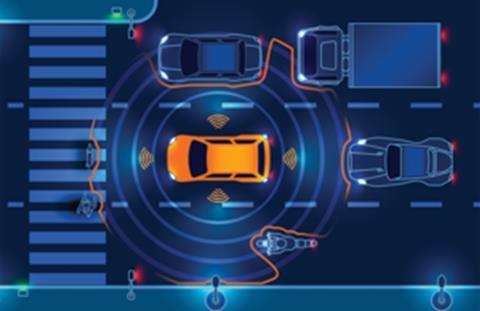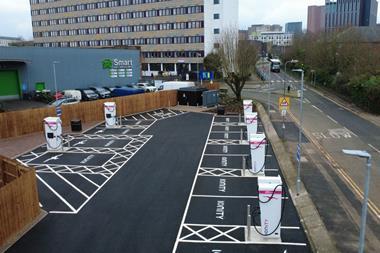
New government plans, backed by £100m of funding, are aiming for the roll-out of self-driving vehicles by 2025.
Some vehicles, including cars, coaches and lorries, with self-driving features could be operating on motorways in the next year, and today’s plans set out new legislation which will allow for the safe wider roll-out of self-driving vehicles by 2025.
The government’s vision for self-driving vehicles is backed by a total of £100m, with £34m confirmed today for research to support safety developments and inform more detailed legislation.
This could include researching the performance of self-driving cars in poor weather conditions and how they interact with pedestrians, other vehicles, and cyclists.
The government is also today confirming £20m, as part of the overall £100m, to help kick-start commercial self-driving, following an existing £40m investment. Successful projects could help see, for example, groceries delivered to customers by self-driving vehicles, or shuttle pods assisting passengers when moving through airports.
Vehicles that can drive themselves on motorways could be available to purchase within the next year, which users would need a valid driving licence for, so they can drive on other roads.
Other self-driving vehicles, for example used for public transport or delivery, expected on the roads by 2025, would not need anyone onboard with a driving licence because they would be able to drive themselves for the whole journey.
Transport secretary Grant Shapps said: “The benefits of self-driving vehicles have the potential to be huge. Not only can they improve people’s access to education and other vital services, but the industry itself can create tens of thousands of job opportunities throughout the country.
“Most importantly, they’re expected to make our roads safer by reducing the dangers of driver error in road collisions.
“We want the UK to be at the forefront of developing and using this fantastic technology, and that is why we are investing millions in vital research into safety and setting the legislation to ensure we gain the full benefits that this technology promises.”
The government is today consulting on a “safety ambition” for self-driving vehicles to be as safe as a competent and careful human driver. This ambition would inform standards that vehicles need to meet to be allowed to ‘self-drive’ on the roads, and organisations, such as manufacturers, could face sanctions if standards are not met.
The new laws for the safe roll-out of self-driving vehicles by 2025 will be brought forward when parliamentary time allows.
The legislation will build on existing laws, and state that manufacturers are responsible for the vehicle’s actions when self-driving, meaning a human driver would not be liable for incidents related to driving while the vehicle is in control of driving.
Business secretary Kwasi Kwarteng said: “Self-driving vehicles have the potential to revolutionise people’s lives, particularly by helping those who have mobility issues or rely on public transport to access the jobs, local shops and vital services we all depend on.
“This funding will help unlock the incredible potential of this industry, attracting investment, developing the UK’s growing self-driving vehicle supply chain, and supporting high-skill jobs as these new means of transport are rolled out.”
RAC head of roads policy Nicholas Lyes said: “While self-driving cars offer the potential to make our roads safer and increase mobility for those who can’t currently drive, the jump from driver assistance to fully autonomous remains fraught with risks, so it is welcome news the government is backing ambitious targets with more funding.
“RAC research also shows drivers like to be in control of their vehicle, so it would require a real culture change for the public to fully embrace driverless technology.”
Today also sees the publication of the Centre for Data Ethics and Innovation’s (CDEI) Responsible Innovation in Self-Driving Vehicles report, which sets out proposals for a trustworthy approach to the regulation and governance of self-driving vehicles.

































No comments yet